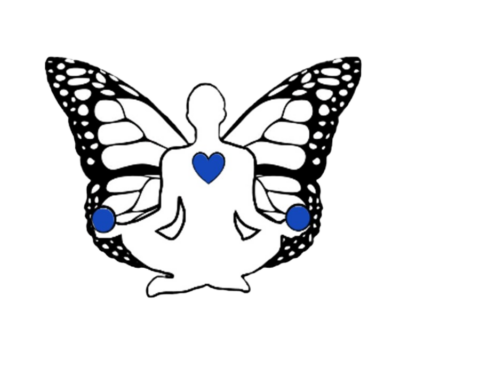Sleep may seem like a random process that happens at night or during the day, but it’s not random. If it was, then you can skip it without any consequences. Skipping sleep may lead to fatigue which can cause accidents and injury to yourself and others.
Lack of sleep is caused by insomnia and sleep disorders. Sometimes, lack of sleep might be as a result of medications. You can use sleeping pills or supplements to improve sleep quality. How long should a human, whether an adult or child, sleep, and why should you sleep for that amount of time.
How long Should You Sleep?
The quantity of sleep is measured by the number of hours of uninterrupted sleep. For adults sleeping 7 hours uninterrupted is quality sleep, but children need 10 hours to achieve quality sleep. Sleep happens in stages that build-up to the next stage. Once your sleep is interrupted, but you happen to go back to bed again, you start the sleep process again. When you eventually wake up, you will still be tired like you never slept at all. You need to keep distractors like phones away from your bed.
Stages of Sleep
According to Hasan, et al. (2015)., there are four stages of sleep. They are NREM which has 3 stages and REM. The NREM has 3 stages N1, N2, and N3. N1 is the first stage, and it lasts for 1 to 5 minutes. This is the dosing stage where the body is not fully relaxed, but some activities have started to slow down. At this stage, you can easily be awakened. There are light changes in the brain activity associated with sleep.
The N2 stage can last from 10 to 60 minutes. Here, the body is more subdued. There is a drop in body temperature, relaxed muscles, slow breathing, and heartbeat rate is also reduced. According to Fernandez, & Lüthi, (2020)., general brain activity slows with short bursts of activities that prevent you from being woken up by external events. Most of the sleep time is spent in the N2 stage in the sleep cycle. N3 is the last phase of the NREM stage. This is deep sleep because muscle tone, pulse, and breathing rate are decreased as you sleep further. It is hard to be woken up at this stage. Key body functions and process growth and recovery bolstering of the immune system occur at this stage. Deep sleep also contributes to insightful thinking, creativity, and memory.
The final stage of sleep is the rapid eye movement (REM stage). Your brain activities at a level of nearly when you are awake. Your eyes can be seen moving, thus the name of this stage. You may experience some temporary paralysis. The REM stage is crucial to memory, learning, and creativity. During the REM stage, the information you learn is stored in the long-term memory.
Why Different Stages
The stages allow the body and brain to recuperate and develop. The study by McWhirter, et al. (2007)., emphasized that obtaining enough sleep in the NREM and REM stages will enable the development of thinking, emotions, and physical health. Being woken up frequently, especially if you suffer from sleep disorders like sleep apnea, you will struggle to cycle into deeper stages. Unfortunately, people with insomnia may not accumulate enough sleep for the next stage. A different body process takes place in each sleep stage, i.e., in the N1 stage, you only fall asleep. In the N2, your body starts relaxing to allow the complex process.
What can Affect Sleep Stages?
You can fail to attain the different stages of sleep because of age, sleep patterns, alcohol, and sleep disorders. Newborns sleep more than 50% on REM and can achieve REM almost immediately. By age 15, according toCrosby, et al. (2005)., their sleep is like that of adults. Abnormal sleep patterns can result in an abnormal sleep cycle that can alter all sleep stages. This is also the case with sleep disorders that cause interruption, thus not achieving enough sleep. Finally, alcohol alters sleep stages by introducing REM earlier, which means you will have a REM rebound when the alcohol rebounds and wears off.
How to Achieve Quality Sleep
You can easily achieve quality sleep by first drafting a sleep pattern that you adhere to. Go to bed and wake up at the same time every day. This will train your mind to produce and secrete melatonin within your sleep schedule. You can make your bedroom area sleep-friendly by getting rid of phones and other distractors. Light from screens can delay the production and secretion of melatonin. Do not go to bed on an empty stomach and not on a full stomach because it can be uncomfortable and keep you up. Avoid caffeine and nicotine while sleeping because they last long in the body-altering your sleep pattern.
Another remedy for achieving quality sleep is sleeping pills and sleep supplements. The common sleeping supplements include melatonin for sleep and CBD for sleep. Before using sleeping pills and supplements, you can check with your doctor first. Sleeping pills can be addictive. Thus, the best option is to use supplements. Melatonin is available in tablets, syrup, and gummies. On the other hand, CBD is available in oils, gummies, vapes, and capsules for sleep. You can also find CBD and melatonin infused together.
Conclusion
Quality sleep is achieved by at least 7 hours of uninterrupted sleep; this allows sleep to build from one stage to another. The sleep stages allow the different body processes to occur smoothly. When you have better sleep, the immune system will be bolstered, and you have a better memory. To have a better sleep at night, you can reduce the number of daytime naps, remove screens like phones and tv from your bedroom, and finally, try sleeping supplements you are comfortable with. Achieving quality sleep should not be difficult.
References
Crosby, B., Lebourgeois, M. K., & Harsh, J. (2005). Racial Differences In Reported Napping And Nocturnal Sleep In 2-To 8-Year-Old Children. Pediatrics, 115(1 Suppl), 225.
Fernandez, L. M., & Lüthi, A. (2020). Sleep Spindles: Mechanisms And Functions. Physiological Reviews, 100(2), 805-868.
Hasan, Y. M., Heyat, M. B. B., Siddiqui, M. M., Azad, S., & Akhtar, F. (2015). An Overview Of Sleep And Stages Of Sleep. Sleep, 4(12).
Mcwhirter, D., Bae, C., & Budur, K. (2007). The Assessment, Diagnosis, And Treatment Of Excessive Sleepiness: Practical Considerations For The Psychiatrist. Psychiatry (Edgmont), 4(9), 26.
- Learn to Enjoy Self-care Routine - September 21, 2023
- Jonathan Aufray’s Story - July 29, 2023
- From Public Housing To Ivy League: The Inspiring Journey of Crystaltharrell.com and its Founder - June 7, 2023






